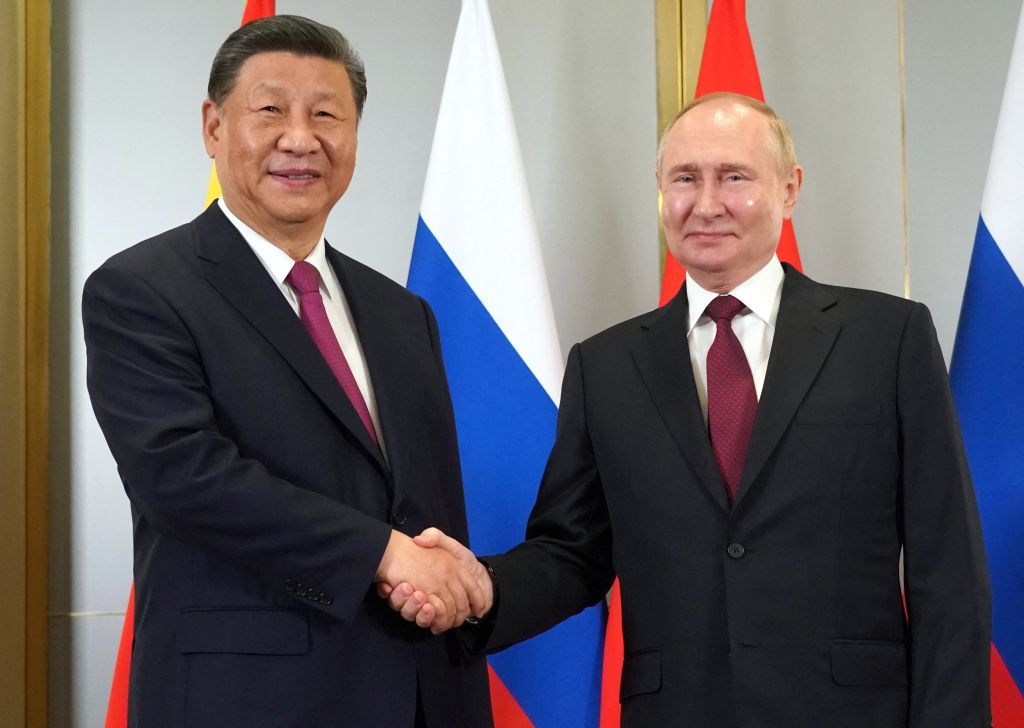China, Russia begin joint military drills

Russia and China have started joint naval drills at a Chinese military point in Zhanjiang, the Chinese Defense Ministry reported on July 14.
"Holding such joint maritime military exercises can enhance the collaboration and professional levels of the two navies and contribute to maintaining maritime and regional security," the Chinese Defense Ministry reported, citing a Russian navy officer heading the drills from the Russian side.
The news comes days after NATO Secretary General Jens Stoltenberg on July 11 said that alliance members agree that China is a "decisive enabler" of Russia's full-scale invasion of Ukraine.
A joint declaration of NATO members also mentioned that China is a threat to the interests and security of the alliance, which Stoltenberg said was "the first time that all NATO members state this so clearly in an agreed document."
China, however, immediately rejected the notion that it is supporting Russia's full-scale war against Ukraine, characterizing NATO's accusation as "provocative."
At the drill's opening ceremony on July 14, a Chinese navy officer said that "the mechanism for joint naval exercises and training between the two navies, as well as their capability to conduct joint maritime military operations, has continued to improve," according to the ministry's statement.
"Following the ceremony, the naval forces carried out on-map military simulation and tactical coordination exercises," the ministry wrote.
"The exercise is divided into three stages, including the concentration of forces, planning at the harbor, and maritime drills."
Earlier on July 8, the Belarusian Defense Ministry reported that the Chinese and Belarusian militaries were conducting joint "anti-terrorist training" at the Brestskiy training range next to the border with Ukraine and Poland.
China has positioned itself as a neutral party in Russia's full-scale war but has deepened economic ties with Moscow and has become the leading source of dual-use goods that feed the Russian defense industry.
The Chinese leadership has previously denied supporting either side of the war and claimed that its ties with Russia do not go beyond the confines of a "normal" relationship while underscoring its close partnership with Moscow.













